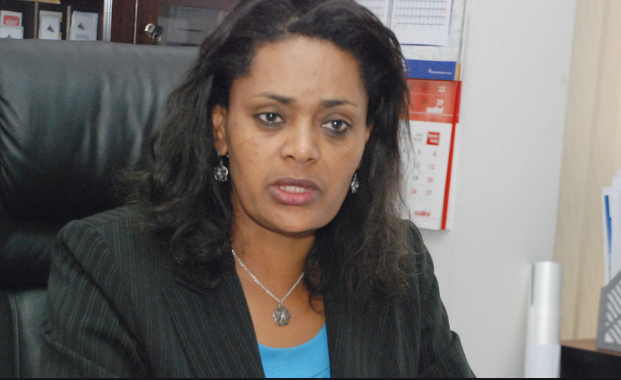
Radar | May 25,2024
Oct 24 , 2020
By MICHAEL GETASETEGNE
A Committee under the Ethiopian Energy Authority (EEA) is set to table the National Transmission Grid Code, a framework which defines the rules, standards, and technical requirements for transmission operators, to the executive board of the Authority. Upon approval, the Code will regulate planning, connection, operation and use of national grid systems.
Crafted by Nexant, an American-based energy consultancy group, the Code is also a set of technical guidelines to serve power producers when they either export power or integrate produced power into the national grid. The Authority will now be able to govern the planning, connection, operation and metering of the operators as well.
Ethiopia lacks a code to formally communicate with different actors in the energy sector, according to Getahun Moges, director-general of the Authority, which drafted the Code with support from the East African Power Pool.
"It sets the framework for all of the players in the energy sector to have a standard to follow," Getahun told Fortune.
The experiences of South Africa, Namibia, India, Zambia and Rwanda were taken into account during the drafting process. It also considered the code of East African Community Interconnection, a package of standards and rules for technical planning of the intergovernmental agreement of 10 East African countries including Ethiopia, to foster power system interconnectivity.
Through its 11 chapters, the Code obliges transmission system operators to submit a forecast called a Power Balance Statement, which states their expected demand and generation capacity over the planning period for the national grid system. It is to be filed annually every September 30 showing estimates for the 10 succeeding years.
The Statement has to include the projection of the seasonal maximum and minimum demand for electricity in the national system, the amount and nature of power generation capacity available to meet the demand, and details of plans for building additional generating units and upgrades of capacity. Transmission system operators and users, who are either connected to the national grid or are seeking to connect, are required to meet minimum technical standards.
The Code also defines the technical requirements of wind and solar power plants when connected to the national grid. It also has details highlighting response actions when there is a sudden drop in voltage due to lack of wind or sunlight and maintaining the active power supply to the grid.
Following the submission of the first draft of the Code from the consultants in February 2018, the Authority, the custodian of the Code, established the National Transmission Grid Code Review Committee. Constituted of nine members drawn from the Authority, the Ethiopian Electric Utility and Ethiopian Electric Power, the Committee is responsible for the review and revision of the Code.
Members have three-year terms, and the Committee is chaired by Hailu Assefa, the Authority's research & development director. The members are appointed by the Authority, which is responsible for the monitoring compliance of the Code and assessing dispute resolutions.
Having no decision-making power, the Committee has made revisions and held consultative meetings with stakeholders for the last two years. Even after the approval of the Code, the Committee is mandated to reflect changes in technology in the revision of the Code and submit proposals to the Authority for the amendment of provisions.
Following the revision, the draft was supposed to be tabled to the Board in the last fiscal year, according to Bahru Oljira, competency certification & technical regulation director.
"Due to COVID-19, the Committee couldn’t have meetings with stakeholders,” said Bahru. “But we're now completing taking in comments from stakeholders, and it'll be tabled before this year ends."
Currently, the generation and transmission line is monopolised by Ethiopian Electric Power; however, this guideline will help the company to solve its operational problems and also sets the framework for operators to join in the future, according to Bahru.
The energy sector is currently undergoing major reforms including splitting Ethiopian Electric Power into two separate companies: one overseeing generation and the other handling transmission. Reforms also include the planned partial privatisation of the energy sector within the next few years. Four options have been tabled for the privatisation of the power sector: selling shares of the institutions, selling majority shares of the individual companies, selling minority shares of the individual companies, or the concession of individual existing institutions.
The new Code will enable energy sector actors to work in harmony under an established standard, according to Frehiwot Woldehana (PhD), state minister for Water, Irrigation & Energy in charge of the energy sector.
Tigabu Atalo, an independent power consultant who worked at the previous Ethiopian Electric Power Corporation (EPCO), shares Frehiwot's view.
"The Code will serve as a guide to anyone in the private sector that is interested in investing in the energy sector," Tigabu said. "It can guide investors, existing and new, by setting a standard, which will smooth out situations."
PUBLISHED ON
Oct 24,2020 [ VOL
21 , NO
1069]

Radar | May 25,2024

In-Picture | May 25,2019

Commentaries | Mar 12,2022

Editorial | Feb 22,2020

Agenda | Apr 15,2023

Sunday with Eden | Dec 14,2024

Fortune News | Aug 09,2025

Radar | Dec 28,2019

Radar | Sep 14,2025

Commentaries | Apr 02,2022

Dec 22 , 2024 . By TIZITA SHEWAFERAW
Charged with transforming colossal state-owned enterprises into modern and competitiv...

Aug 18 , 2024 . By AKSAH ITALO
Although predictable Yonas Zerihun's job in the ride-hailing service is not immune to...

Jul 28 , 2024 . By TIZITA SHEWAFERAW
Unhabitual, perhaps too many, Samuel Gebreyohannes, 38, used to occasionally enjoy a couple of beers at breakfast. However, he recently swit...

Jul 13 , 2024 . By AKSAH ITALO
Investors who rely on tractors, trucks, and field vehicles for commuting, transporting commodities, and f...

Nov 1 , 2025
The National Bank of Ethiopia (NBE) issued a statement two weeks ago that appeared to...

Oct 25 , 2025
The regulatory machinery is on overdrive. In only two years, no fewer than 35 new pro...

Oct 18 , 2025
The political establishment, notably the ruling party and its top brass, has become p...

Oct 11 , 2025
Ladislas Farago, a roving Associated Press (AP) correspondent, arrived in Ethiopia in...